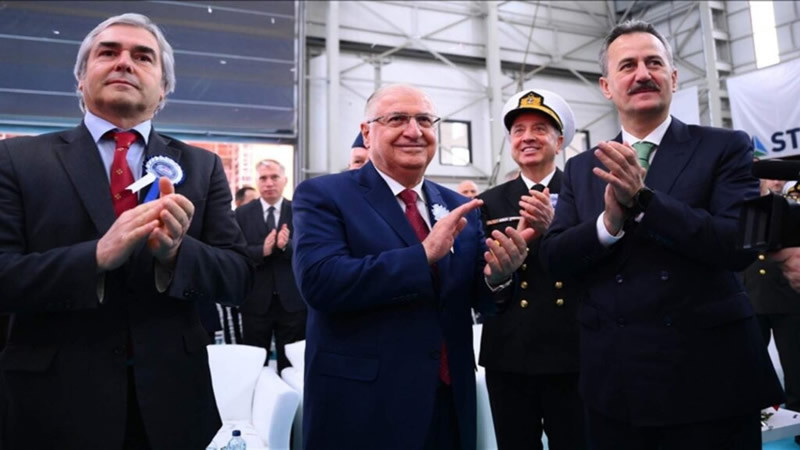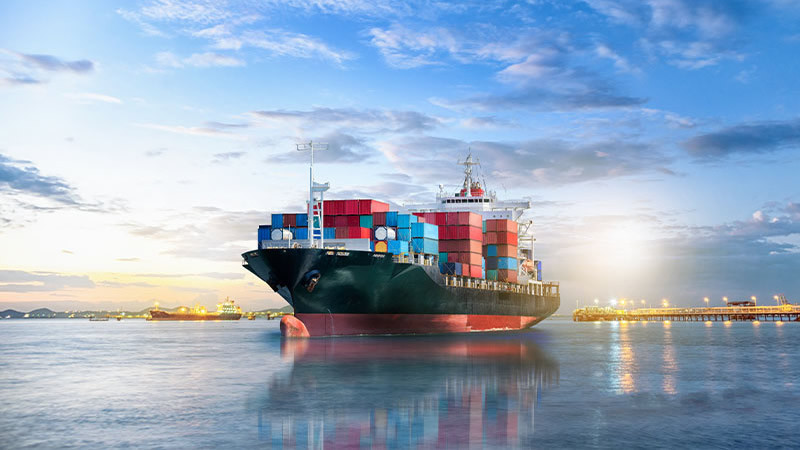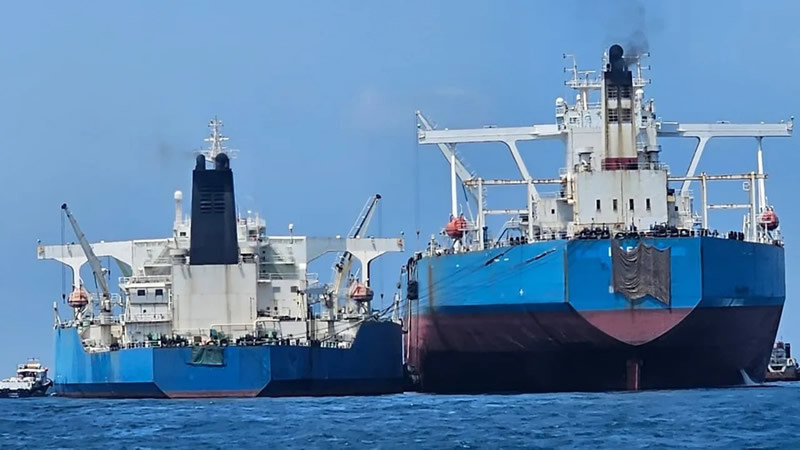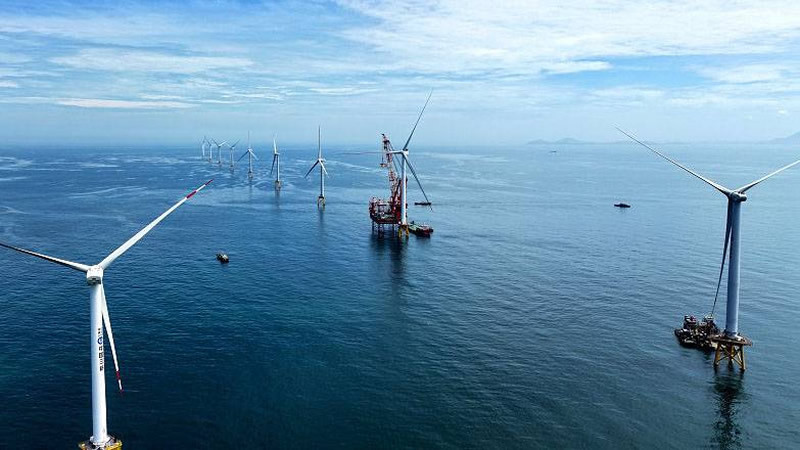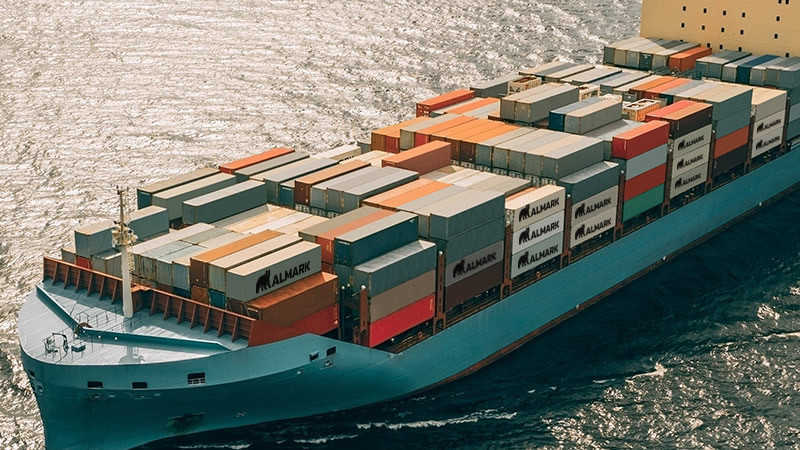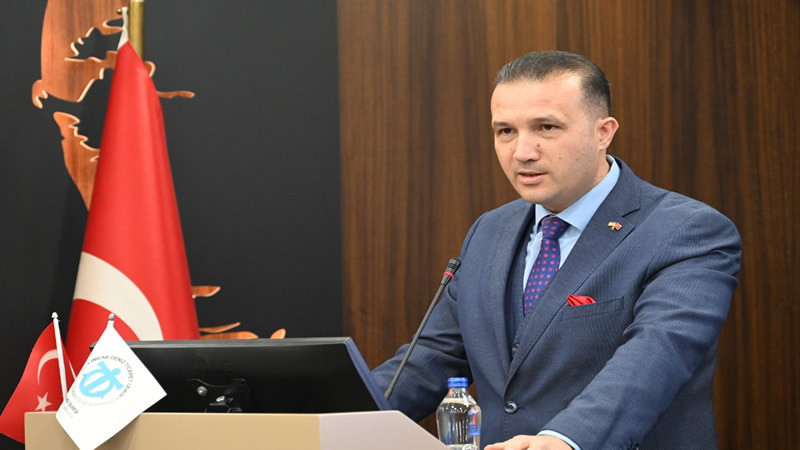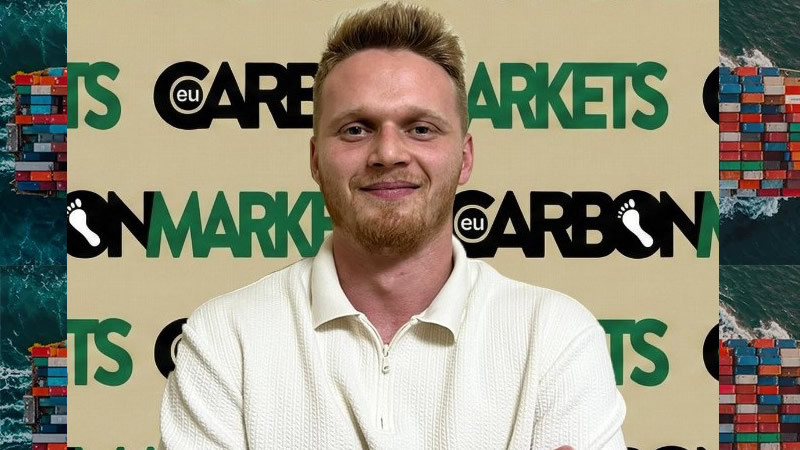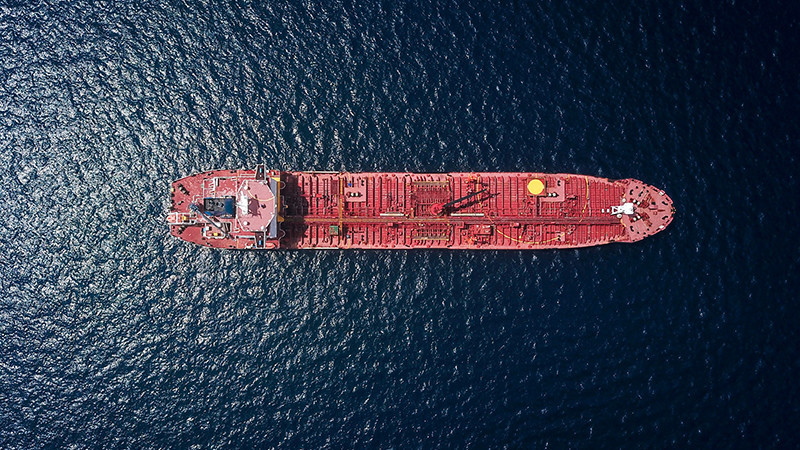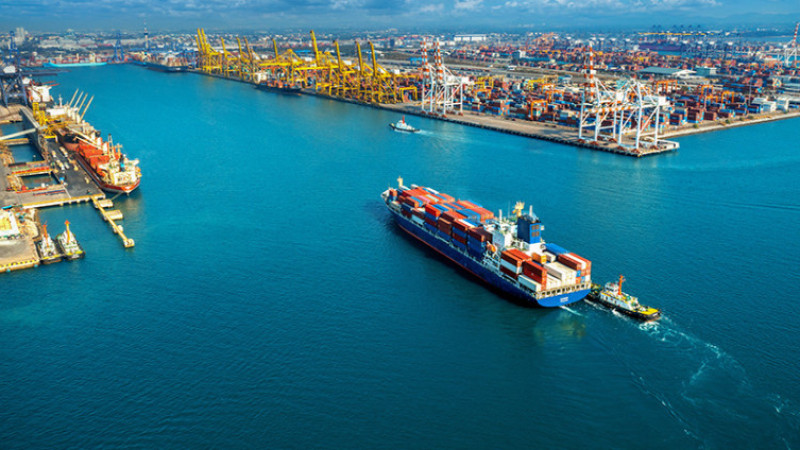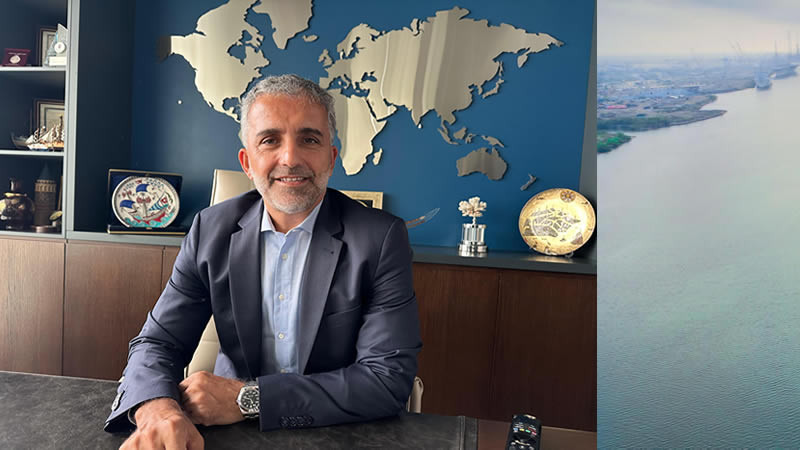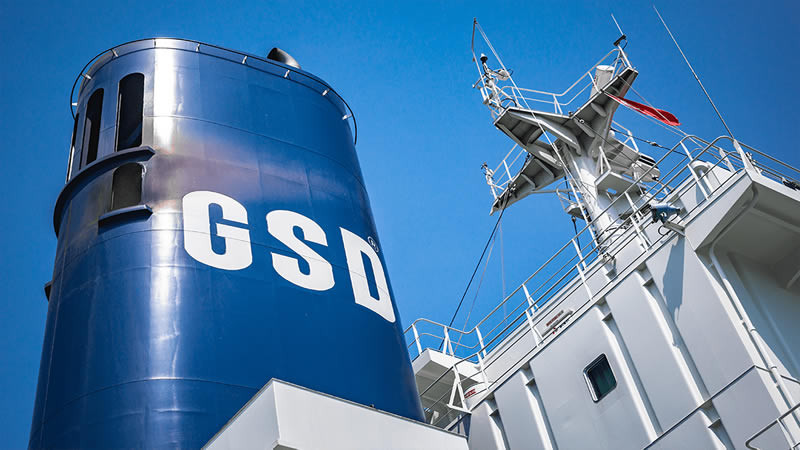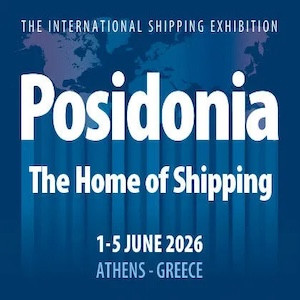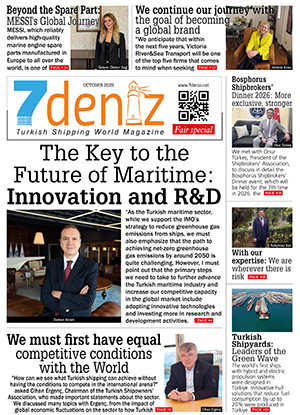Kıran: Maritime industry is our lifeblood
Mr. Tamer Kıran, evaluated Turkey's power in the maritime field, the production capacity in our shipyards, the general direction of shipping after the pandemic and the impact of the war between Russia and Ukraine on our region to TurkMarinews.

Mr. Tamer Kıran, Chairman of the IMEAK Turkish Chamber of Shipping, Vice President of the Union of Chambers and Commodity Exchanges of Türkiye (TOBB) and Chairman of the Board of Trustees of Piri Reis University, evaluated Turkey's power in the maritime field, the production capacity in our shipyards, the general direction of shipping after the pandemic and the impact of the war between Russia and Ukraine on our country and our region to TurkMarinews.
Could you give brief information about the power of the Turkish maritime merchant fleet and its place in the global shipping?
The maritime industry is one of the indispensable sectors for Turkey. Today, Turkey is on its way to becoming a maritime country with its successful progress in many areas of the maritime industry. As of the beginning of 2022, the shipping capacity of Turkish fleet ranks 15th in the list of countries controlling the world's largest fleet (1000 GT and above) with 1,517 ships and 30 million 680 thousand DWT.
Turkey's most powerful weapon in the economy is without doubt the export. For this, logistics will continue to play the most important role. Recent events have shown that shipping is our lifeblood, our strongest tie with abroad. As Turkey, our most important goal should be to rank our Turkish-owned fleet among the top ten countries in 2030 with 50 million DWT, with environmentally friendly and high quality ships that comply with international maritime requirements, so that we can get a larger share of the world's cargo.
Due to its location, Turkey has many advantages compared to its competitors in the region with its ports and shipyards. Could you give some information about these sectors?
With its location in a unique geography surrounded by the seas on three sides, Turkey has become a country that has achieved great success in shipbuilding, repair, maintenance and refit. The development of our shipyards continues rapidly. The contribution of our maritime industry to our country's economy is increasing day by day, with its shipyards capable of building advanced ships, time served manpower and a growing maritime fleet.
Today, the number of shipyards is 84 and our annual production capacity is 4.65 million DWT. The majority of our shipyards are located in the sea of Marmara, especially in Tuzla region. In addition to the existing shipyards, new shipyards and facilities were established in the Black Sea, the Aegean and the Mediterranean coastline.
In our shipyards, high value added sea vehicles such as LNG and diesel fuel hybrid passenger and car ferries, LNG fueled, hydraulic hybrid propulsion system tugboats and remote control boats are constructed and exported to foreign buyers.
There are 210 harbours and ports in Turkey, which has 8333 kilometers of coastline. Our ports, which are the end point of the national transportation system, have a very effective position on the economic, social and commercial structure of our country and on Turkey’s access to international markets, which is very suitable for maritime transportation from a geo-strategic point of view.
In 2021, Turkey's imports by sea were 233 million tons and exports were 154 million tons, and 87.5% of imports and exports were transported by sea. In addition to these, the total amount of cargo handled at our ports, including transit cargoes and cabotage, increased by 6% to 526 million tons in 2021 compared to the previous year.
Turkey has now become a leading country in Europe in cargo handling with its sufficient port infrastructure.
With the pandemic, the maritime industry in general has moved to a different dimension. What will be the changes awaiting the maritime industry after the pandemic?
At a time when many sectors came to a standstill with the COVID-19, which affected the world, all activities in the maritime sector reached the peak point. During this period, the maritime sector performed very important tasks in the survival of the economies, the provision of social demands and the sustainability of the supply chain.
The developments as a result of the global pandemic have clearly demonstrated that the continuity of world trade depends on the survival of the maritime sector. After the termination of the pandemic, maritime trade will also maintain its importance.
Our world is going through a rapid transformation period. The maritime industry will undoubtedly get its share from this transformation. The maritime profession as the locomotive of world transportation, one of the oldest known professions in the world, continues its efforts to adapt to the digital transformation and digitalization studies brought about by the Industry 4.0 applications, which is described as the new industrial revolution. Therefore, in the coming period, there will be transitions in terms of digitalization in many areas from maritime education to port operations, from the shipbuilding industry to international maritime rules, from maritime law to ship operating models.
Another important point is that the effects of climate change caused by global warming have begun to be experienced more and more in today’s daily life. The maritime industry fulfills its duties in technology development and taking measures against global warming.
It is vital that our country, which carries out almost half of its trade with the European Union (EU), can maintain its international competitiveness and achieve a green economy transformation by taking into account the European Green Deal.
Considering our Turkish-owned maritime trade fleet, shipbuilding industry, ports, briefly our maritime industry as a whole, and in order not to face huge economic costs due to the changes to be brought, the regulations on green transformation will be one of the most important issues that the sector will follow carefully in the coming period.
What would you like to say about the short and long term effects of the Russia-Ukraine war on our sector?
The outbreak of the war between the two countries, which are our foreign trade partners, with which we maintain very good neighborly relations in the Black Sea was not good at all. We want this war to stop as soon as possible, and we want the human tragedies that we watch with sadness to come to an end. While Turkey has been in a position to negotiate with the parties to establish peace as soon as possible since the beginning of the crisis, the fact that it hosted peace negotiations in March, one in Antalya and the other in Istanbul, draws attention as the most concrete indicator of these efforts.
The war between the Russian Federation and Ukraine has shaken the global macro balances considerably from the beginnging. It is obvious that if the war, lasting since two months, lasts longer, Turkey will face serious problems primarily in the fields of energy, agricultural product trade and tourism.
In the current crisis environment, we see that the balances and possibilities can change every day. There is great uncertainty both in the region and in the world. As both the relevant government institutions of our country and the stakeholders of the sector, we continue to keep in touch with our international counterparts in order to produce alternative solutions, while closely following the events. As the situation becomes clearer, I believe that solutions to problems will be found quickly.


